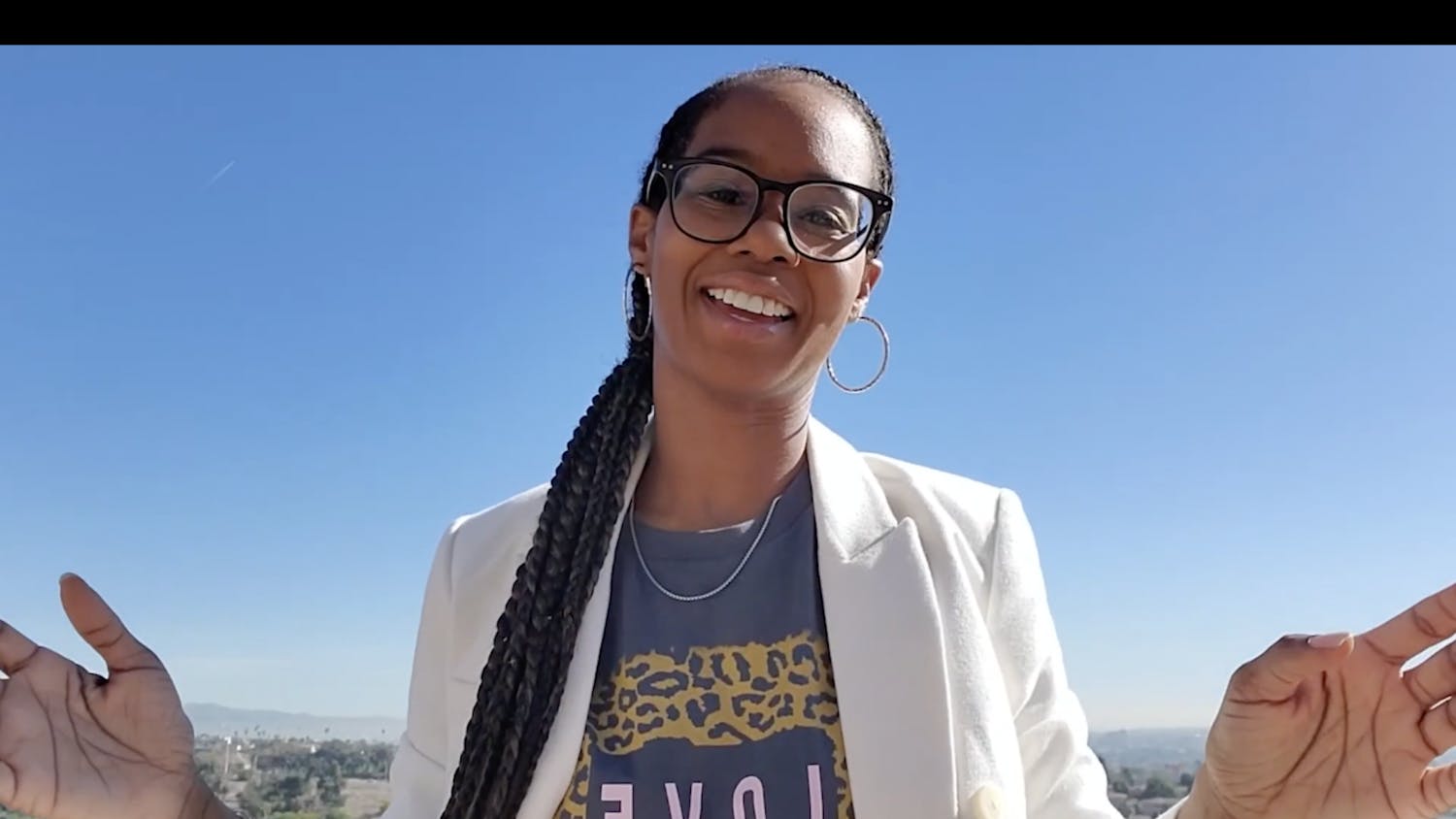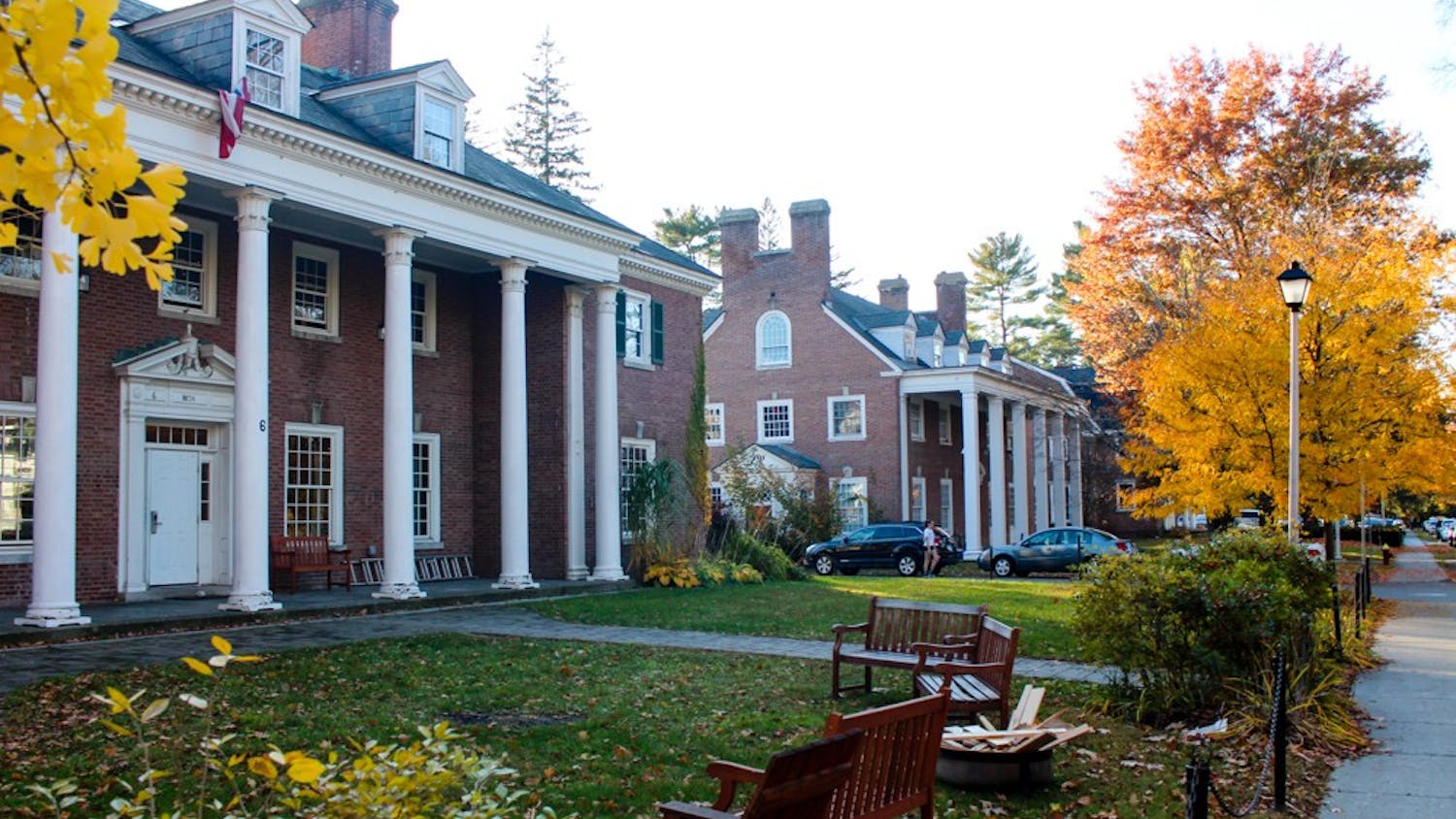“Visibility,” Dartmouth’s month-long campaign to promote gender equity and end gender- and power-based violence, started on Jan. 29 and will feature remote programming throughout February. This year’s events will focus on the intersections between gender- and power-based violence and race.
Among Visibility’s events are the annual student-led performances “Upstaging Stereotypes” and “Voices,” as well as two workshops facilitated by community organizer Niki Franco and a talk given by artist and activist Sonya Renee Taylor.
Visibility:2021 committee co-chair Ana Furtado ’22 said that there was a consensus among committee members to incorporate “historically marginalized communities and voices” into programming this year.
“We can’t speak about gender-based violence without thinking about the intersections of race, culture and national identity,” Furtado said. “And so how do we complexify this debate? How do we complexify this conversation and include rather than subtract? I think that was very much the focus of the campaign this year.”
Visibility kicked off programming on Jan. 29 with “Upstaging Stereotypes,” a student-led and student-directed performance focused on the intersection of masculinity and race. According to co-director Olivia Goodwin ’21, “Upstaging Stereotypes” was held in January in order to avoid competing with events scheduled for Black Legacy Month, a celebration also under the purview of the Office of Pluralism and Leadership.
The event, which consisted of monologues and spoken performances by students, sought to discuss how masculinity affects other gender identities and gender equality, Goodwin said. They added that “Upstaging Stereotypes” is “fluid” in direction, since the performances are “pretty much whatever the cast of that year make it to be.”
According to Goodwin, this year’s “Upstaging Stereotypes” was held over a Zoom seminar and drew 30 audience members — a larger turnout than last year. Nat Stornelli ’21, who attended the event, said that although the lack of physical interaction created “a little bit of discomfort,” the ability for students to attend from their own rooms allowed for “more time and space to be reflective.”
Visibility programming subcommittee member Jimena Perez ’23, who is responsible for organizing speakers, said that the committee felt it was important to center events on topics that “needed to be represented at Dartmouth that traditionally aren’t represented,” such as “community care, abolition and organizing.”
Franco, an abolitionist community organizer, was invited this year and will facilitate two workshops on “Abolition or Extinction.”
“Abolition is [about] reimagin[ing] new ways to combat violence, new ways to take care of ourselves, to build community with each other and to survive,” Perez said. “Throughout the pandemic, we've had to come through different ways in order to survive, [such as] through mutual aid, and so that's the motivation for us bringing [Abolition or Extinction].”
On Feb. 15, the first workshop — “A Workshop on Austerity and the Prison Industrial Complex” — will focus on abolition as it relates to community organizing, whereas the second workshop on Feb. 17 — “Imagining Futures Rooted in Care for Land, Labor and People” — will focus on incorporating the goals of abolition into one’s “own space,” Perez said.
Taylor, a performance poet, activist and leader advocating for self-love and body empowerment, will give a talk on Feb. 21. Furtado said that Taylor was someone who “explores how radical self-love, community care and ideas of body empowerment” can also be “valuable tools for social justice and personal and global transformation.”
She added that the event intends to help students understand how to incorporate these ideas into both their own lives and an academic space.
Visibility’s programming will culminate on Feb. 26 with “Voices,” a performance written and directed by students of marginalized gender identities. Co-director Marina Cepeda ’21 said that this event is popular among students because it allows for “a space of vulnerability.” She said this year, monologues will touch upon themes such as sexual assault and stalking, as well as ideas of joy, love and coming out of the closet.
Although the event will take place virtually, Cepeda said that the event has focused on showcasing vulnerability through various rehearsals and consulting with theater professors.
After the live premiere, Cepeda said that there will be a discussion with members of the cast and the audience, as in previous years.
Cepeda added that it was important that campaigns like Visibility exist at Dartmouth, as she believes they reach out to members of marginalized communities who may feel alone on campus.
“When you see [students] talk about stuff that is shoved under the rug, it provides a sense of community and of knowing that you're not alone,” Cepeda said.
Daniel Modesto ’24 is the News executive editor. He is from Brooklyn, New York, and is a Native American and Indigenous Studies major modified with Latin American, Latino and Caribbean Studies.




